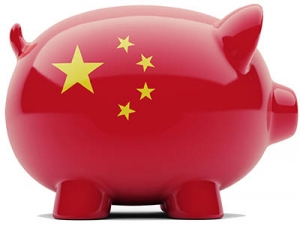That deal included a slew of global investors: Canada Pension Plan Investment Board, Singapore sovereign wealth fund Temasek Holdings, U.S. private equity firms Warburg Pincus, Silver Lake and General Atlantic, and Malaysia's SWF Khazanah Nasional Bhd.
Analysts say that Ant forecasts almost 2/3 of its revenue by 2023 will come from fintech banking and fraud prevention services. For now, Ant is focusing heavily on payments and has related partners in Southeast Asia, India, Japan and Korea.
The U.S.'s blocking of Ant's bid for MoneyGram stymied the Chinese firm's foray into North America, so Ant changed course and instead bought the UK's WorldFirst money-transfer company for $700 million.
As the Sino-U.S. tech cold war intensifies, Ant can expect U.S. regulators to carefully scrutinize large acquisition attempts by Chinese tech firms. Indeed, the rising tech rivalry between the world's two largest economies pre-dates the tariff-focused trade war by several years. It was U.S. President Donald Trump's predecessor Barack Obama who first blocked a significant Chinese-led deal - the attempted acquisition of German semiconductor maker Aixtron by Fujian Grand Chip Investment Fund LP.
Ant's current strategy in the U.S. focuses on the Chinese tourist segment. The Hangzhou-based firm announced in February that it would launch Alipay in 7,000 Walgreens stores, where Chinese tourists shop for health supplements. Research by Nielsen has found that 90% of Chinese tourists would pay for purchases with their mobile phones if given the choice.
Overall, Chinese fintech firms are expanding overseas as growth slows in their home market and regulators move to control systemic financial risk. Their success is far from certain, despite the hype. Previous attempts to go global by Chinese software companies have not borne fruit outside of the immediate neighborhood. Alibaba's Taobao, the world's largest e-commerce marketplace, remains dependent on its home market of mainland China. Sure, it's carved out a niche in Taiwan and Hong Kong, but there are minimal cultural and linguistic barriers in those two markets. Similarly, Tencent's WeChat ecosystem is largely confined to mainland China's borders. Its global expansion remains limited to facilitating transactions by Chinese consumers overseas.
Thus, the question remains: Will digital finance platforms made for China be viable serving a wider market overseas, where the Chinese firms have to compete on playing field not tilted in their favor? The only thing for certain is that such success would be a first for Chinese internet companies.

